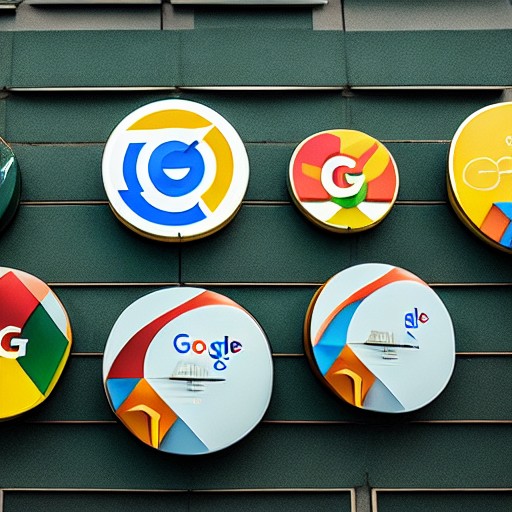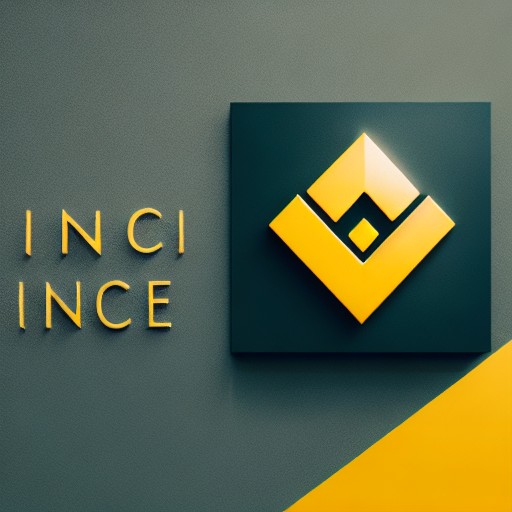Are you curious about the masterminds behind the latest advancements in chatbot technology? Look no further than Demis Hassabis and Mustafa Suleyman, the founders of Google DeepMind. These two brilliant minds have a rich history in artificial intelligence (AI) and are now revolutionizing the way we interact with chatbots through their new project, WaveNet. Join us as we dive into their backgrounds, successes, challenges, and exciting future endeavors!
Demis Hassabis and Mustafa Suleyman, the founders of Google DeepMind
Demis Hassabis and Mustafa Suleyman are two of the most significant figures in the field of artificial intelligence. They both have unique backgrounds that brought them to where they are today.
Demis Hassabis, a child prodigy, started his career as a game designer before shifting his focus towards cognitive neuroscience and AI. He was responsible for creating several successful games like Theme Park and Black & White before pursuing higher education in science.
On the other hand, Mustafa Suleyman was an activist who worked on various projects concerning social justice issues before getting into AI. His interest in technology grew while working at Oxford University’s Future Humanity Institute, which ultimately led him to co-found DeepMind with Demis Hassabis.
Together, they founded Google DeepMind back in 2010 with the mission to “solve intelligence.” Their goal was simple: create an intelligent machine that could think like humans do by teaching it through experience rather than programming.
Their efforts paid off when their AlphaGo program made headlines worldwide after beating human world champions Lee Sedol and Ke Jie at Go – one of the most complex board games known to man.
Since then, they’ve continued pushing boundaries by developing new technologies like WaveNet – a deep learning algorithm capable of replicating human speech patterns more effectively than any previous method.
Their backgrounds in artificial intelligence (AI)
Demis Hassabis and Mustafa Suleyman are two of the most influential people in the field of artificial intelligence (AI) today. Both have had a lifelong passion for technology, which led them to pursue careers in science and engineering.
Hassabis, born in London in 1976, showed an early aptitude for mathematics and computer programming. He went on to study at Cambridge University, where he earned a degree in Computer Science before pursuing graduate studies in Cognitive Neuroscience.
Suleyman also grew up with a fascination for science and technology. Born to Turkish parents living in east London, he pursued his interest by studying Philosophy at Oxford University before turning his attention to AI research.
Both Hassabis and Suleyman eventually found their way into the world of tech startups. They worked together on several projects before ultimately founding DeepMind Technologies Ltd., an AI research company that was later acquired by Google.
Their unique backgrounds combine elements of neuroscience, philosophy, computer science and engineering – making them uniquely qualified to tackle some of the biggest challenges facing AI research today.
How they met and founded DeepMind
Demis Hassabis and Mustafa Suleyman met in 2010 at a conference on artificial intelligence. They both shared an interest in AI and its potential to change the world as we know it. Demis had already achieved success as a game designer, while Mustafa had experience working with NGOs.
Their passion for AI led them to found DeepMind in 2011, with the goal of solving some of the most complex problems facing humanity through cutting-edge research into machine learning.
The two founders were joined by Shane Legg, another high-profile figure in the world of AI, who brought his expertise in reinforcement learning to help develop DeepMind’s algorithms.
Despite being relatively unknown at first, DeepMind quickly gained attention from investors and experts alike due to their groundbreaking work on AlphaGo – an algorithm that defeated human champions at Go, a notoriously difficult board game.
Since then, DeepMind has continued to push boundaries with innovations such as WaveNet and their ongoing efforts towards artificial general intelligence (AGI), which aims to create machines capable of thinking like humans.
Demis Hassabis and Mustafa Suleyman’s shared vision for using AI to positively impact society has resulted in one of the most exciting companies operating today.
The company’s successes and challenges
Since DeepMind’s founding in 2010, the company has achieved numerous successes and overcome significant challenges. One of their most notable achievements was creating AlphaGo, an AI program that became the first computer program to defeat a human world champion in Go.
However, with success came challenges – as DeepMind continued to push boundaries in artificial intelligence research, they were met with ethical concerns from both experts and the public. In particular, concerns were raised regarding data privacy and potential job displacement due to automation.
Despite these challenges, DeepMind has continued to make strides in AI research. They have partnered with healthcare organizations to develop applications for machine learning in medicine and have also worked on environmental sustainability projects using AI technology.
While their work is certainly groundbreaking, it will be important for companies like DeepMind to address ethical considerations surrounding AI development moving forward. As we continue towards a future where chatbots powered by advanced algorithms are increasingly common, it is crucial that we consider the implications of these technologies on society as a whole.
Their new project, WaveNet
One of the most exciting projects that Demis Hassabis and Mustafa Suleyman’s DeepMind team is currently working on is WaveNet. This project involves creating a new kind of neural network that can generate realistic-sounding speech and music.
Unlike traditional text-to-speech systems, which rely on pre-recorded snippets of audio, WaveNet generates speech from scratch in real-time. The result is much more natural-sounding speech that can be customized to sound like specific people or even different accents.
WaveNet isn’t just limited to generating speech either – it can also create music. In fact, DeepMind researchers have used the technology to recreate famous pieces by artists such as Bach and Mozart with stunning accuracy.
The potential applications for this technology are huge – imagine being able to communicate with chatbots that sound like real people or hearing personalized audiobooks read in your own voice.
While there are still challenges to overcome before the technology becomes widely available, WaveNet represents an exciting step forward in AI-powered communication and creativity.
How WaveNet could change the way we interact with chatbots
WaveNet is a revolutionary technology that has the potential to change the way we interact with chatbots. Unlike traditional text-to-speech systems, WaveNet uses deep neural networks to synthesize speech from scratch. This means that instead of piecing together pre-recorded snippets of audio, WaveNet can generate entirely new voices and tones in real-time.
One of the biggest advantages of WaveNet is its ability to create more natural-sounding speech. By modeling speech at a much higher level than previous systems, it can capture subtle nuances like intonation, rhythm and stress. The result is a more expressive and human-like voice that’s easier to understand and engage with.
Another benefit of WaveNet is its versatility across multiple languages and accents. With traditional text-to-speech systems, creating an accurate accent requires extensive recording sessions and editing work. But with WaveNet’s machine learning algorithms, generating high-quality voices for different regions becomes much simpler.
Perhaps most excitingly, WaveNet opens up new possibilities for personalizing chatbot interactions. With the ability to generate unique voices for individual users or contexts (such as time of day or emotional state), chatbots can feel less robotic and more engaging than ever before.
As AI continues to evolve alongside other emerging technologies like natural language processing (NLP) and virtual reality (VR), there’s no telling what impact it will have on our daily lives – including how we communicate with machines via chatbots powered by innovative solutions such as DeepMind’s latest invention: WaveNet!
The future of AI and chatbots
As we have seen, Demis Hassabis and Mustafa Suleyman are two of the brightest minds in the field of artificial intelligence. Their work has revolutionized the way we think about chatbots and natural language processing.
With their latest project, WaveNet, they are pushing the boundaries even further and opening up a world of possibilities for chatbot technology. Thanks to their groundbreaking research, we can expect chatbots to become more intelligent, more responsive and more human-like than ever before.
Looking toward the future, it is clear that AI and chatbots will continue to play an increasingly important role in our lives. From virtual assistants like Siri or Alexa to customer service bots on e-commerce sites – these technologies are already changing how we interact with businesses online.
As AI continues to evolve at breakneck speed, there is no doubt that these innovations will only become more sophisticated over time. And with experts like Hassabis and Suleyman leading the charge, we can be confident that the future of chatbots looks very bright indeed.











